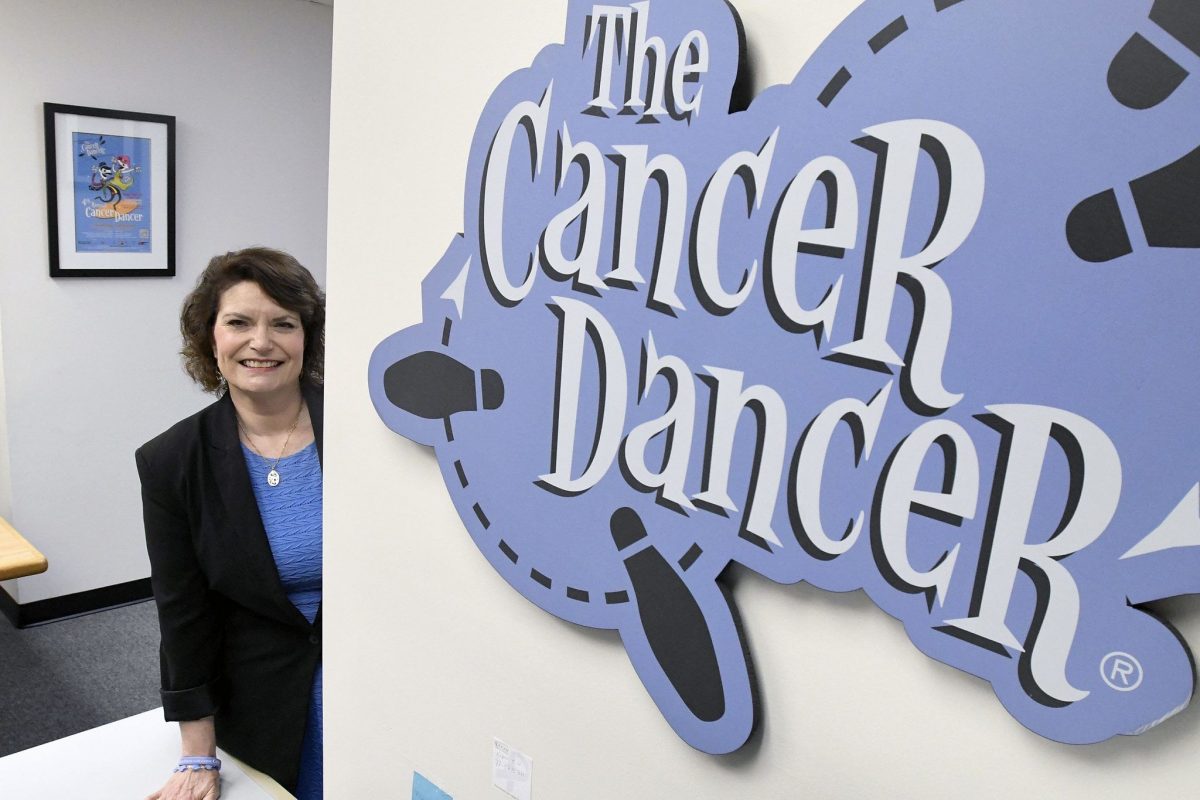Esophageal cancer is a preventable disease, but heartburn sufferers often ignore the signs.
Mindy Mintz Mordecai knows firsthand that not taking heartburn seriously can have devastating consequences.
In 2007, her husband, John “Monte” Mordecai, began complaining of pressure in his chest. Mindy, having been diagnosed years earlier with gastroesophageal reflux disease, or GERD, thought that might be the cause of his discomfort.
GERD causes the acid in one’s stomach to irritate the lining of the esophagus, the tube carrying food from the mouth to the stomach. Symptoms include heartburn, persistent coughing, sore throat, hoarse voice and choking.
Monte would often choke while lying down, but he didn’t raise any of these symptoms to his physician until he began having trouble swallowing. On March 27, 2008, Monte died of esophageal cancer, leaving behind Mindy and their daughters, Mara and Maya. He was 63.
Since then, Mindy has been driven to change the attitudes and behavior patterns of heartburn sufferers. She is the founder, president and CEO of the Pikesville-based Esophageal Cancer Action Network, or ECAN.
As many as 15 million Americans experience heartburn, and for some the burning sensation is a sign of something more serious — esophageal cancer.
About 3 million Americans with GERD develop Barrett’s Esophagus, a condition in which the lining of the esophagus changes to resemble the stomach due to persistent reflux. Having Barrett’s can significantly increase the chances of developing esophageal cancer, one of the deadliest and fastest-growing cancer diagnoses in the U.S. Diagnoses have increased 600 percent during the past 35 years.
Because Barrett’s does not have unique symptoms, GERD may be the only warning. (ECAN has developed a patient guide to help individuals discuss their symptoms with a doctor.)
Mindy Mordecai wants to help remove the stigma attached to discussing heartburn to help doctors catch Barrett’s before it becomes cancer. A former television journalist and attorney, she persuaded the National Cancer Institute in 2010 to add esophageal cancer to its cancer mapping project, providing a foundation for esophageal cancer and other cancers with new research and therapies.
Earlier this year, the outcomes of the project were published in the scientific journal Nature. And in May, ECAN filed a citizen’s petition with the U.S. Food and Drug Administration, asking to add warning labels concerning the risks of esophageal cancer to the packaging for all “over-the-counter products labeled to relieve or prevent heartburn associated with reflux disease, acid indigestion and sour stomach.”
Mordecai believes there’s a strong case for changing the label. For most heartburn and GERD sufferers, over-the-counter medications relieve their symptoms. But these products do not cure heartburn or GERD, she said. Since the medications alleviate symptoms, most people don’t think of talking to their doctors about heartburn. As a result, those with esophageal cancer are often diagnosed at an advanced stage, Mordecai said.
At stage one of esophageal cancer, cure rates are 80 to 90 percent. At stage three, the cure rates drop to 30 to 40 percent, while at stage four survival is in the single digits.
“Earlier screening equals earlier detection equals a better survival rate, but it’s normally caught at stage three or stage four,” said Dr. John C. Lipham, ECAN’s board chair and chief of upper gastrointestinal and general surgery at the University of Southern California.
In 2014, Michelle Rifkin was diagnosed with stage three esophageal cancer. Like many heartburn sufferers, she believed she could simply live with the discomfort. When she finally shared her symptoms with her doctor, she’d had difficulty swallowing for about a month. Rifkin had been taking GERD medications for more than a dozen years.
Rifkin said her doctor sent her for an endoscopy, a non-surgical procedure that uses a flexible tube with a light and camera to view the digestive tract. That was immediately followed by a PET (positron emission tomography) scan, which shows how tissues and organs are functioning, to confirm her diagnosis.
Today, Rifkin said she has no evidence of the disease. But like many with a late-stage diagnosis, she said she will use a proton pump inhibitor for the rest of her life.
Dr. Bruce Greenwald, professor of medicine at the University of Maryland School of Medicine and the Greenebaum Comprehensive Cancer Center, is ECAN’s chairman emeritus. He said he believes ECAN will play an increasingly critical role in promoting awareness and early detection, and will become “the” resource for esophageal cancer.
To become that resource, Mordecai is going out on a listening tour. Starting in Southern California, she will talk with patients and families and to doctors and researchers to understand how ECAN can best support them.
“We wan to give doctors the ability to catch Barrett’s Esophagus before it rears its ugly head and patients can no longer swallow,” she said. “This is a preventable disease, and that’s the tragedy to me.”
For information, visit ecan.org or call 410-358-3226.
Faye Rivkin is a Baltimore-based freelance writer.
Top photo: Mindy Mintz Mordecai (Photo by Steve Ruark)





